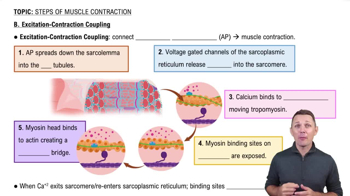Textbook Question
When the semilunar valves are open, which of the following are occurring?
(1) coronary arteries fill
(2) AV valves are closed
(3) ventricles are in systole
(4) ventricles are in diastole
(5) blood enters aorta
(6) blood enters pulmonary arteries
(7) atria contract
a. 2, 3, 5, 6,
b. 1, 2, 3, 7,
c. 1, 3, 5, 6,
d. 2, 4, 5, 7.
567
views




